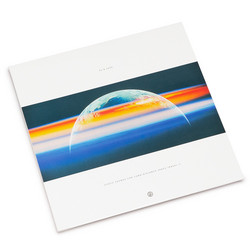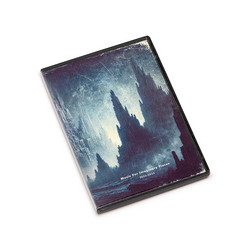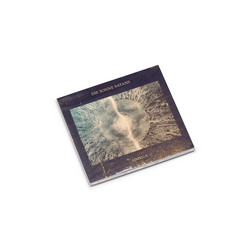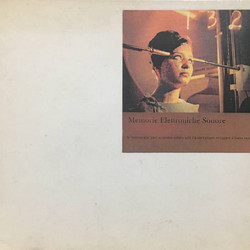*200 copies limited edition* Few films in the history of cinema have achieved the haunting, meditative power of Andrei Tarkovsky’s Solaris (1972). This masterpiece of science fiction transcends the genre’s typical preoccupation with technology and speculative futures, reaching instead into the depths of human consciousness, memory, and the aching poetry of the unknown. Adapted from Stanisław Lem’s novel of the same name (in turn, one of the greatest masterpieces of speculative science fiction narrative), Solaris eschews the cold rationalism of many sci-fi narratives in favor of a contemplative, almost mystical exploration of grief, love, and the elusive nature of reality. At the heart of the film is the enigmatic ocean of the planet Solaris, a sentient and inscrutable entity that manifests the subconscious fears and desires of the scientists who orbit it. This premise, simple yet profound, serves as a canvas upon which Tarkovsky paints his philosophical inquiry into the human condition. For Tarkovsky, Solaris is less about the alien and more about humanity’s inability to reconcile with its past. The ocean reflects not only the characters' suppressed traumas but also the ineffable longing that resides within all of us, a longing for lost time, for the return of loved ones, for redemption.
Solaris unfolds slowly, its deliberate pacing inviting viewers to sink into the vast silences and lingering imagery that define Tarkovsky's cinematic language. Long tracking shots through rain-soaked landscapes and the dim corridors of the space station evoke a sense of isolation and introspection. The film's visual and aural textures work in harmony, crafting an atmosphere where memory feels as palpable as the physical environment. This immersive quality is heightened by the sparse yet evocative electronic score by Eduard Artemyev, whose droning soundscapes and abstract compositions mirror the psychological disorientation experienced by the characters. Tarkovsky himself described the film as an attempt to explore "the moral problems of man in a space environment," but its implications extend far beyond that premise. Solaris ultimately reflects the timeless struggle to understand ourselves and our place in the universe. For this reason, Solaris has left an indelible mark on artists across disciplines, from filmmakers to musicians and writers. Its dreamlike ambience and philosophical depth resonate deeply within the world of sound art and experimental music. The sonic landscapes of Solaris have inspired countless musicians to explore the emotional terrain between the cosmic and the intimate, crafting compositions that echo the film's ethereal and introspective essence.
This compilation is a tribute to Tarkovsky’s vision, an attempt to translate the enigmatic beauty of Solaris into a sonic experience. Each track, like the planet’s ocean, reflects fragments of memory and imagination, evoking both wonder and melancholy. The music contained here draws from the textures of ambient, drone, and experimental electronics, mirroring the film's hypnotic pacing and its exploration of the liminal spaces between waking and dreaming. In these compositions, you may hear the echoes of Kelvin’s (the main character) sorrow, the undulating mystery of Solaris, and the endless dance between presence and absence. To immerse oneself in Solaris is to embark on a journey without easy answers. Likewise, this collection of music invites you to drift into the unknown, to embrace the mysteries that lie beneath the surface of sound, and to discover, perhaps, something of your own subconscious reflected back at you. Tarkovsky believed in the spiritual power of art to transcend time and space. In that spirit, let this tribute be a continuation of his search for meaning beyond the visible world.








































































